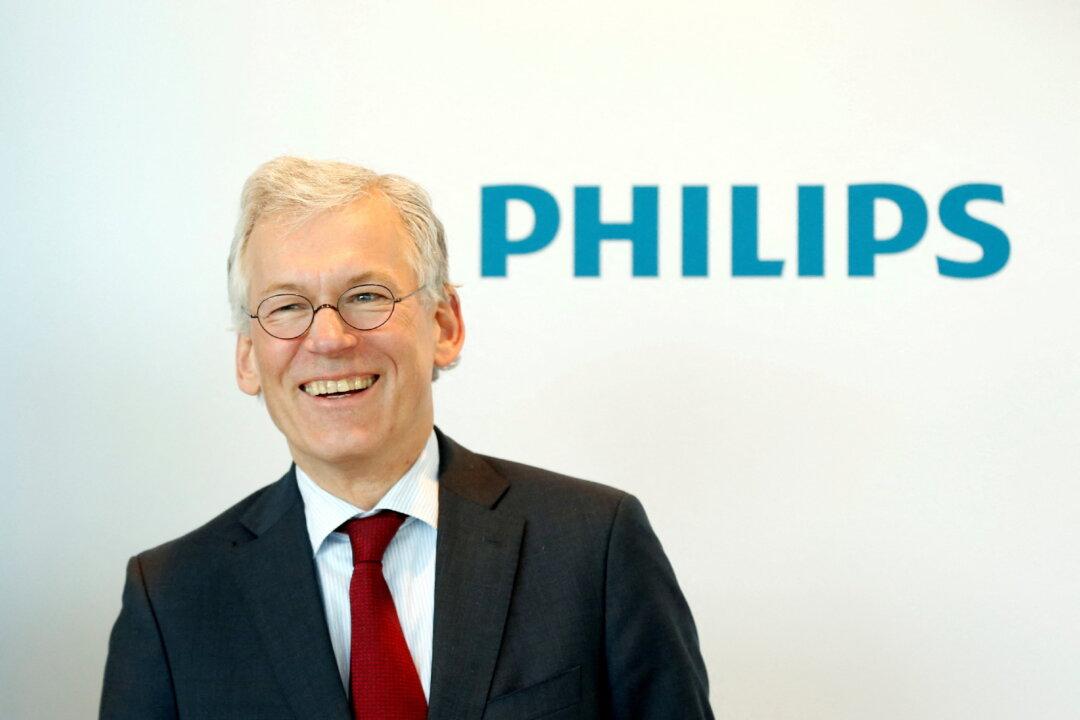AMSTERDAM—Philips Chief Executive Frans van Houten will leave the company in October, the Dutch health technology firm said on Tuesday, after a key product recall cut its market value by more than half over the past year.
Philips said Van Houten would be replaced on Oct. 15 by Roy Jakobs, head of the company’s Connected Care businesses. Van Houten’s third term as CEO had been due to end in April.





